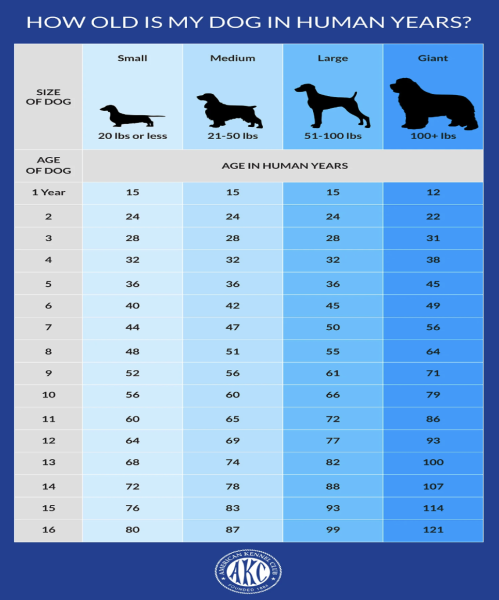It commonly held belief that one dog year equals seven human years, but what if I told you this is completely incorrect. Rather, this myth has been passed down through generations, and it was recently uncovered that this is untrue.
This simplistic method for estimating a dog’s age in human terms was most likely created in the general statistics of that era, which indicated that humans typically lived to about 70 years, while dogs had an average lifespan of around 10 years. This led to the easy-to-remember multiplication factor of seven, designed to help pet owners easily relate their dog’s age to human age milestones. So if my friend’s dog was two years old, it would be reasonable to assume that the dog would be fourteen years old in human years. This formula’s simplicity contributed to its widespread acceptance among pet owners, veterinarians, and animal lovers, even though it overlooks the complex nature of dogs’ lifespans and aging processes, which vary significantly across different breeds.
But more recent research has challenged this oversimplified view, revealing that the aging rates significantly differ among breeds. It turns out that there is no one-size-fits-all formula to accurately translate a dog’s age into “human years.” Moreover, other variables such as the dog’s size and overall health condition also significantly influence how a dog’s age might correspond to that of a human.

According to Pet Honesty, the study has introduced a novel approach to adjusting dogs’ ages to “human years.” This mainly starts with the dog aging fifteen human years in its first year of living. Then, it’s the second year, the dog matures another nine human years. After having this growth spurt, the dog now continues at a steady pace of five human years per dog year for the rest of its life. This is based on what would happen to the age of a medium-sized dog. The research further emphasized that an increase in body mass by every 4.4 pounds could decrease a dog’s life expectancy by approximately one month. This means the larger the size of the dog, the lower the life expectancy. According to American Kennel Club, larger dogs have shorter lifespans because their larger sizes give rise to chances of the dog being more easily injured or having internal issues. So how can we tell if a dog is in its senior year?
The age comparison between dogs and humans is influenced by several critical factors such as the dog’s size, breed, and health status. As dogs grow older, they undergo various physical and mental transformations. These can include a decline in mobility, visible changes in coat health, and the potential onset of joint problems. Behavioral changes such as increased irritability or a noticeable decrease in activity levels may also be evident. Understanding the signs of aging and providing the appropriate care and attention can significantly enhance the quality of life for dogs in their “golden years,” allowing them to lead fulfilling and comfortable lives even as they age. There are some things people can do to increase the lifespan of these precious animals.
A dog’s lifestyle and the care it receives play pivotal roles in its aging process. The most obvious factor is lifestyle: a dog that engages in regular physical activity and consumes a balanced diet is likely to enjoy a healthier and possibly longer life compared to a dog that leads a sedentary lifestyle with suboptimal nutrition. Another way is to check the dog’s health regularly through veterinarians. Just like humans, a health problem caught earlier on can be treated early, thus increasing the lifespan of the dog.
The myth that seven dog years is equal to one human has been busted. But regardless of their age, all dogs deserve to be loved and forever cherished by their owners.













































































































































